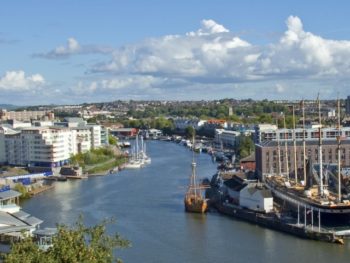The FTA has slammed proposals for a charging Class C band Clean Air Zone (CAZ) in Bristol, which it says would hurt local businesses and the economy.

As announced last month, the council is looking at whether to implement a Class C charging Clean Air Zone or an eight-hour-a-day diesel car ban.
The Clean Air Zone would charge older buses, coaches, taxis, HGVs and LGVs but not private cars, with charges set at £9 a day for non-compliant taxis and LGVs and £100 a day for HGVs, coaches and buses. It would also include a 24-hour a day, seven day a week HGV weight restriction on the worst polluted routes and a diesel car ban on two sections of streets plus bus and local traffic changes and a scrappage scheme (up to £2,000) for diesel cars.
The diesel car ban would cover a small zone from 7am to 3pm, seven days a week but would not apply to taxis/private hire or emergency services. Other measures, including a scrappage scheme, could also be included.
The council was one of 27 that were named in Defra’s 2017 clean air plans and told that they needed to undertake action to consider the best option to achieve statutory nitrogen dioxide limit values within the shortest possible time.
This included the requirement to undertake a feasibility study and identify options by 31 March 2018 and identify a preferred option by the end of 2018. But although the council came up with a number of possible options a year ago, it has missed deadlines to submit a preferred option, citing concerns over the impact of any scheme on low-income residents.
The FTA has now expressed concerns over the possibility of a charging Clean Air Zone, which it says would the place the burden of improving air quality solely on the shoulders of business, when all citizens should play their part in the fight against pollution.
Chris Yarsley, FTA’s policy manager for the South West of England, said: “A charging CAZ of this scale would cause operating costs for some small businesses to soar. Hard-working companies and individuals – many of whom keep Bristol’s city thriving – would be left to bear the burden of improving air quality alone. It is unfair to place this solely on their shoulders, when other factors, including private road users, also contribute to emission levels across the city.
“Many other city councils, including Nottingham and Southampton, have convinced DEFRA that other solutions can deliver a quicker, more sustainable improvement to air quality without damaging the local economy. CAZs bring no long-term air quality benefit; due to natural fleet replacement cycles, all vehicles operating in the city would reach this standard anyway in a few years.”
Yarsley continued: “FTA is most disappointed that Bristol City Council has not provided a justification as to why it is proposing a Class C band – which excludes private cars – over a Class D band, which encompasses all polluting vehicles. We are calling for the council to provide a clear rationale: why should the logistics sector be left picking up the bill, when private motorists continue to drive unsanctioned?”
Under the proposals, a scrappage scheme would only be made available to private road users; operators of commercial vehicles would receive no financial help.
Yarsley continued: “The council has launched this consultation without providing any details on how and when it expects to achieve compliance with air quality limits; this information will only be made public approximately halfway through the consultation period. And while the consultation does give the possibility of an exemption for operators based within the zone, or for those with a low turnover, once again, it does not go into any detail. FTA is calling for the council to share a much clearer and more detailed version of its plans.
“If Bristol does decide it must implement a charging CAZ, it should include all vehicle types within its remit; the size should also be kept as small as possible to mitigate the very worst economic damage. We encourage all our members to submit a response to the consultation and have their voices heard.”
The council is holding a number of drop-in sessions to give the public the opportunity to discuss the options in more detail.
For more details on the consultation and to give your view, go to www.bristol.gov.uk/trafficcleanairzone.

